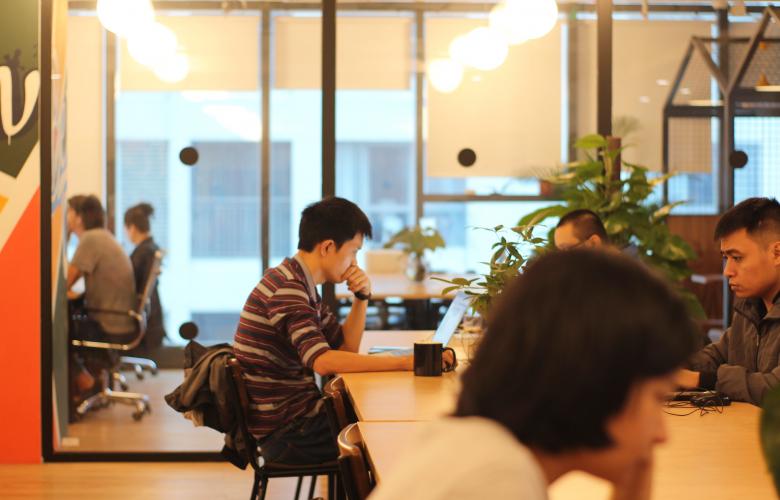Even before the pandemic, Japan has been obsessed with how to make employees more productive.
The nation has a low birth rate problem and increased worker productivity was, and still is, seen as a way to justify raising wages.
Reducing commuting time was a prime target for saving workers time in a day and even large Japanese companies are aware that if workers have as little commute as possible then they will be more productive.
So, in pursuit of increased productivity, even prior to the pandemic, Japanese companies have been obsessed with ways to make coworking spaces feasible for their operations.
Then along came the pandemic which accelerated everything.
Everyone was apprehensive in the beginning. Companies I spoke to were wondering aloud about how to hold everyone accountable in a purely digital environment. Candidates were worried if anyone would hire at all given the uncertain nature of early 2020.
All firms that could, went remote; some completely, others partially. Now, over two years on, a trend is becoming clearer; C-Suite executives and workers like remote working and middle management are still struggling with it.
C-Suite loves the cost savings and workers love the increased work life balance.
Most of the middle management issues I hear about relate to training; two rounds of new grads have been hired during the pandemic and trying to train them in a purely digital environment has been difficult.
Take IT engineers for example. These are high concentration workers that ideally don’t like to be disturbed when working but when they need to solve something, talking shop with another like minded engineer over an unscheduled coffee really does come up with the solutions as the engineer trying to solve the problem is in the right headspace at that moment in time making learning more efficient.
This type of “coffee training” takes place across the job spectrum be it sales or HR or customer service staff. No one anywhere has tried to measure the amount of training that takes place with these types of chats, something that the pandemic has drawn some clearer lines around.
In Japan, like most other countries I assume, there are two ways to keep your job and rise within the company; one is to get results and the other is to keep showing up.
What the pandemic has done in the workforce here in Japan is move the dial of employee value more towards results and less towards presenteeism. While not overtly said, I suspect that this concern looms in the minds of some middle management too.
In a purely digital environment, showing up to the zoom call doesn’t have the gravitas that showing up in a boardroom does.
Which is where coworking spaces come in. Rather than truck everyone into the same central office day in and day out, companies are looking at more malleable coworking spaces that employees can gather in to preserve the cost savings C-Suite loves, preserve the work-life balance workers love and alleviate the training issues that middle management have.
Indeed, all large Japanese real estate developers have their own dedicated coworking space divisions and finding tenants for these spaces is a lot easier these days than, for example, restaurants.
However a lot of these initial pushes into the sector by tier one developers still tend to be within the CBD areas. The suburbs too have coworking spaces but they are run more by the second tier operators and noticeably lack in fittings the central CDB spaces do.
The suburbs also lack CBD monthly rent cost as well.
However coworking ultimately lands only time will tell but one thing is clearer; the pandemic in Japan has helped end the era of seniority over meritocracy; that results now matter more than showing up and hiding in the herd.
But we still need to show up to a certain extent and hybrid working models offered by companies seem to be the answer manifesting itself. Coworking offices is a sector that I see growing in the future given increased corporate demand and available space in both CBD areas and suburbs due to lessening restaurant, bar, karaoke and other types of commercial entertainment spaces that now sit empty.
One could even argue that increased coworking spaces could usher in a new area of regional revitalisation; if central Tokyo salaries could be earned in places like Hachioji or Atami say, then those areas will see an increased tax base which can be in turn spent on better infrastructure, thus luring new residents and companies thereby creating a virtuous cycle of population decentralisation in Japan.
However, this is purely speculation at this stage but early signs show this could become a reality moving forward.
One thing is certain; the work environment isn’t going back to 2019 ever and hybrid remote / in-person work environments at least will be the norm moving forward. This bodes well for workers and companies as well as regional residential property markets in the mid to long term.






